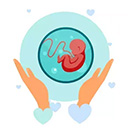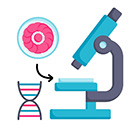Do IVF Babies Have More Issues? A Deep Dive into the Facts, Myths, and What Parents Need to Know
In vitro fertilization (IVF) has been a game-changer for millions of families, turning dreams of parenthood into reality. Since the first IVF baby, Louise Brown, was born in 1978, over 10 million children worldwide have come into the world through this technology. It’s incredible to think about—couples who once thought they’d never have kids now hold little ones in their arms. But with this miracle of science comes a big question that lingers in the minds of many: Do IVF babies have more issues? Are there hidden risks that parents should worry about?
If you’re considering IVF, or maybe you’re just curious about how it all works, you’ve probably heard whispers—maybe from a friend, a family member, or even a post online—about health concerns for IVF babies. Some say they’re more likely to have birth defects, others mention higher rates of chronic conditions like asthma or even cancer. It’s enough to make anyone pause and wonder: What’s the real story here? This article is your one-stop guide to understanding the truth behind these claims. We’ll dig into the science, bust some myths, and give you practical insights based on the latest research—plus a few things you won’t find in the usual articles floating around online.
Let’s start by exploring what we know about IVF babies and their health, breaking it down step by step so you can feel confident and informed.
What Is IVF, and Why Does It Matter?
IVF is a process where doctors take an egg from a woman, fertilize it with sperm in a lab, and then place the resulting embryo back into the uterus to grow into a baby. It’s a lifeline for people facing infertility—whether due to blocked fallopian tubes, low sperm count, or other challenges. Today, about 1-2% of all babies born in the U.S. come from IVF, and that number is even higher in places like Denmark, where it’s closer to 6%.
But here’s the thing: IVF isn’t exactly “natural.” It involves hormones to boost egg production, lab equipment to create embryos, and sometimes freezing those embryos for later use. That’s led some to wonder if tinkering with nature might come with a cost—specifically, to the health of the babies born this way. To figure this out, we need to look at the data, not just the rumors.
Are IVF Babies at Higher Risk for Health Problems?
The short answer? Yes, IVF babies do face slightly higher risks for certain health issues compared to babies conceived naturally. But—and this is a big “but”—the story is more complicated than a simple yes or no. Let’s break it down into the main areas of concern: birth defects, preterm birth, and long-term health conditions.
Birth Defects: A Small but Real Difference
One of the most talked-about worries is whether IVF babies are more likely to have birth defects—like heart problems or cleft palate. Studies show there’s some truth to this. According to the Centers for Disease Control and Prevention (CDC), about 4% of IVF babies have a birth defect, compared to 3% of naturally conceived babies. That’s a 1% difference—not huge, but noticeable.
- What the research says: A massive study from 2016, looking at over 1 million births, found that IVF babies had a 1.5 times higher chance of congenital malformations (think heart defects or limb issues). Another study in 2022 confirmed this trend, especially for singletons (not twins).
- Why it might happen: Scientists think it could be tied to the IVF process itself—like how embryos are handled in the lab—or to the infertility that led to IVF in the first place. For example, older parents (who often turn to IVF) are already at higher risk for babies with genetic issues.
Real-life example: Imagine two neighbors, Sarah and Jen. Sarah conceives naturally at 28, while Jen uses IVF at 38 after years of trying. Jen’s baby has a small heart defect—not life-threatening, but it needs monitoring. Was it the IVF? Her age? Or just chance? It’s hard to pin down, and that’s the challenge researchers face.
Preterm Birth and Low Birth Weight: The Twin Factor
IVF babies are more likely to be born early (before 37 weeks) or with a low birth weight (under 5.5 pounds). The stats are striking: about 1 in 5 IVF singletons and over half of IVF twins are born preterm, compared to 1 in 10 naturally conceived babies.
- Why twins matter: IVF often leads to twins or triplets because doctors used to transfer multiple embryos to boost success rates. Twins naturally come with higher risks—preterm birth, breathing problems, you name it. Today, many clinics stick to single embryo transfers, which cuts this risk way down.
- The numbers: A 2023 report from the Human Fertilisation and Embryology Authority (HFEA) in the UK showed that single embryo transfers dropped the multiple birth rate from 20% in 2009 to 6% in 2021. That’s progress!
Practical tip: If you’re doing IVF, ask your doctor about single embryo transfer. It’s safer for you and the baby, even if it means a slightly lower chance of pregnancy per cycle.
Long-Term Health: What Happens as They Grow?
Now, let’s fast-forward. Do these early risks turn into bigger problems later? Here’s where things get murky—but also fascinating.
- Heart health: Some studies, like one from 2021 in the Journal of the American College of Cardiology, found that IVF kids (even teens) had slightly higher blood pressure and stiffer arteries. It’s subtle, but it could mean a higher risk for heart disease decades down the road.
- Cancer: There’s a whisper of concern about cancer, too. A 2019 study in Pediatrics found a 42% higher risk of leukemia in IVF kids, though the overall risk is still tiny—about 1 in 10,000 versus 1 in 14,000 for naturally conceived kids.
- Brain and behavior: Autism and ADHD pop up in discussions, but the evidence is shaky. A 2020 review of 19 studies found no clear link once they adjusted for things like mom’s age or preterm birth.
A parent’s perspective: Think of it like this—your IVF kid might need an extra checkup or two, but they’re not doomed to a life of illness. Most grow up just fine, chasing their siblings around the yard like any other kid.
Interactive Quiz: How Much Do You Know About IVF Risks?
Let’s take a quick break and test your knowledge! Answer these questions (in your head or on paper), then check the answers below.
- What’s the biggest reason IVF babies are born early?
- A) The lab process
- B) Multiple births
- C) Mom’s stress
- True or False: IVF babies have a 50% higher chance of birth defects.
- T or F
- Which long-term issue has the weakest evidence linking it to IVF?
- A) High blood pressure
- B) Autism
- C) Leukemia
Answers: 1) B, 2) F (it’s about 33% higher, not 50%), 3) B. How’d you do? If you got 2 or 3 right, you’re already ahead of the curve!
Why Do These Risks Exist? Untangling the Causes
So, why do IVF babies seem to have more issues? It’s not just one thing—it’s a mix of factors. Let’s peel back the layers.
Is It IVF or Infertility?
Here’s a twist: the health risks might not be from IVF itself, but from the infertility that made IVF necessary. Couples who struggle to conceive often have underlying issues—like genetic quirks or hormonal imbalances—that could affect their baby’s health, IVF or not.
- Evidence: A 2017 study compared IVF babies to naturally conceived babies from subfertile parents (those who took over a year to conceive). The risks were similar, suggesting infertility plays a big role.
- Takeaway: If you’re worried about IVF risks, talk to your doctor about your specific health history. It might not be the process—it might be the starting point.
The Lab Effect: Epigenetics and Embryo Handling
IVF happens in a lab, not a body, and that’s got scientists curious about “epigenetics”—how genes turn on or off without changing DNA. The theory? Lab conditions (like culture dishes or freezing) might tweak how an embryo develops.
- What’s new: A 2023 study from Johns Hopkins found that nearly half of IVF embryos stop growing early due to genetic glitches after fertilization—not from the egg or sperm, but from the lab process. This could explain some health quirks in the ones that make it.
- Cool fact: Think of epigenetics like a dimmer switch on a light. The lab might accidentally nudge that switch, changing how bright the “health” light shines later.
Parental Age: The Clock Keeps Ticking
IVF parents are often older—mid-30s or 40s—compared to the average natural conception age of 29. Older eggs and sperm carry more risks, like chromosomal errors, which can lead to issues like Down syndrome or heart defects.
- Stat alert: Women over 35 using IVF have a 1 in 100 chance of a baby with a chromosomal issue, versus 1 in 400 for those under 30, per the American College of Obstetricians and Gynecologists (ACOG).
Quick tip: If age is a factor for you, consider genetic testing before embryo transfer. It’s an extra step, but it can spot problems early.
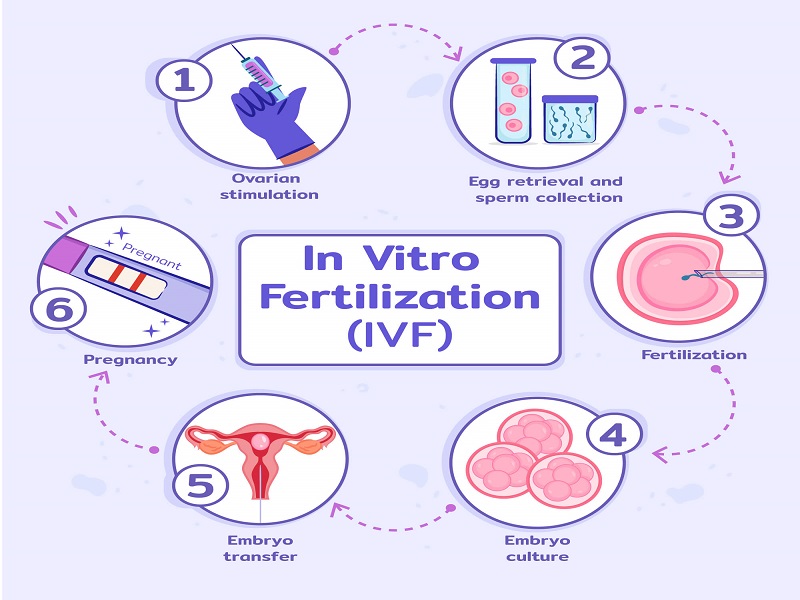
Busting Myths: What’s NOT True About IVF Babies
With all this talk of risks, let’s clear up some nonsense you might’ve heard.
- Myth #1: IVF babies are “weaker” overall. Nope! Most IVF kids are as healthy as their peers. That 1% bump in birth defects doesn’t mean they’re fragile—it’s just a slight uptick in specific issues.
- Myth #2: IVF causes autism. The data’s too messy to say this. Preterm birth (more common in IVF) is a bigger autism risk than the IVF process itself.
- Myth #3: Frozen embryos are riskier. Actually, babies from frozen embryos often do better—higher birth weights and fewer complications—per a 2022 study in Fertility and Sterility.
Reality check: Social media loves a scary headline, but the truth is calmer. IVF babies aren’t ticking time bombs—they’re just kids with a unique start.
What’s Missing from the Conversation? 3 Fresh Angles
Most articles stop at birth defects and preterm birth, but there’s more to explore. Here are three topics you won’t find everywhere else—and why they matter.
1. The Mental Health of IVF Kids: Are They Okay Emotionally?
Physical health gets all the attention, but what about the mind? A 2024 study from the Murdoch Children’s Research Institute in Australia followed IVF kids into their 20s. The result? No big differences in anxiety or depression compared to naturally conceived peers—but they did report slightly more “withdrawn” behavior as teens.
- Why it’s cool: This is one of the first studies to track IVF kids into adulthood, not just childhood.
- Parent tip: Keep an eye on social skills as your IVF kid grows. A little extra playdate time might go a long way.
2. Epigenetic Echoes: Could IVF Affect Grandkids?
Here’s a wild one: some animal studies (mice, mostly) suggest IVF’s epigenetic changes might pass to the next generation. A 2023 paper in Nature Communications found that IVF mouse pups had altered gene expression—and so did their babies.
- Human angle: We don’t have solid human data yet, but it’s a question worth watching. Could your IVF baby’s kids inherit subtle health traits? It’s a sci-fi twist that’s still unfolding.
- Fun thought: Picture your grandkid saying, “Thanks, Grandma, for the IVF—and the extra checkups!”
3. The Sibling Factor: Comparing IVF to Non-IVF Kids in the Same Family
Most studies compare IVF kids to the general population, but what about their own brothers or sisters conceived naturally? A 2022 UK study did just that—and found IVF kids had more hospital visits as toddlers, but the gap shrank when compared to their siblings.
- Insight: This hints that family factors (like parenting style or genetics) might outweigh IVF’s impact.
- Takeaway: If you’ve got an IVF kid and a natural one, don’t sweat the small stuff—they’re more alike than different.
Poll Time: What Worries You Most?
Let’s get interactive again! If you’re reading this as a parent-to-be, what’s your biggest concern about IVF? Pick one (mentally or jot it down):
- A) Birth defects
- B) Preterm birth
- C) Long-term health
- D) Nothing—I’m just curious!
No pressure, but I’d bet “B” or “C” tops the list for most. Drop your pick in the comments if you’re feeling chatty!
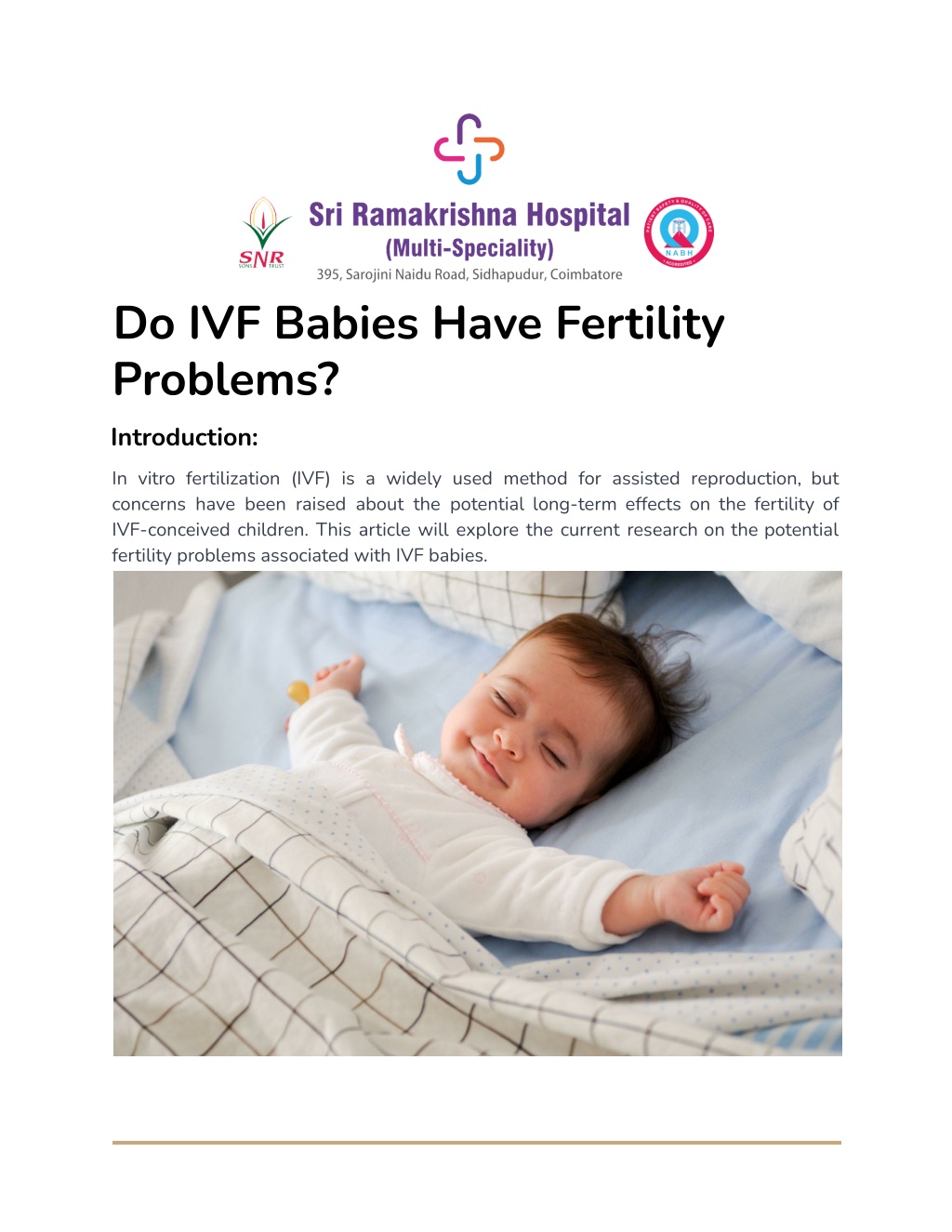
Practical Advice: How to Lower Risks if You’re Doing IVF
Okay, so there are risks—but they’re not set in stone. Here’s how you can stack the odds in your favor, based on the latest science and real-world experience.
Before IVF: Prep Like a Pro
- ✔️ Check your health: Get a full workup—thyroid, blood sugar, the works. Fixing small issues now can help later.
- ✔️ Ask about genetic screening: Preimplantation genetic testing (PGT) can spot embryos with big problems before transfer.
- ❌ Don’t rush: Skipping steps to save time or money might backfire. Take it slow and steady.
During IVF: Make Smart Choices
- ✔️ Go for single embryo transfer: It cuts the twin risk, which slashes preterm birth odds.
- ✔️ Freeze if you can: Frozen embryo transfers often lead to healthier pregnancies—less stress on your body, better outcomes for baby.
- ❌ Avoid overloading on hormones: Work with your doctor to find the gentlest dose that works.
After Birth: Stay Proactive
- ✔️ Early checkups: Schedule extra pediatric visits in the first year to catch anything unusual.
- ✔️ Track milestones: Keep a simple log of your baby’s growth and behavior—peace of mind is priceless.
- ❌ Don’t panic: A little hiccup (like a cold) doesn’t mean IVF caused it. Kids are kids!
Step-by-step guide: If you’re starting IVF, here’s a quick plan:
- Meet your fertility doc and map out your health history.
- Pick a clinic with a strong single embryo transfer track record (check HFEA or CDC stats).
- Opt for PGT if it fits your budget—about $3,000 extra, but worth it for some.
- Freeze embryos if possible, then transfer when your body’s ready.
- Celebrate your baby—and keep that pediatrician on speed dial!
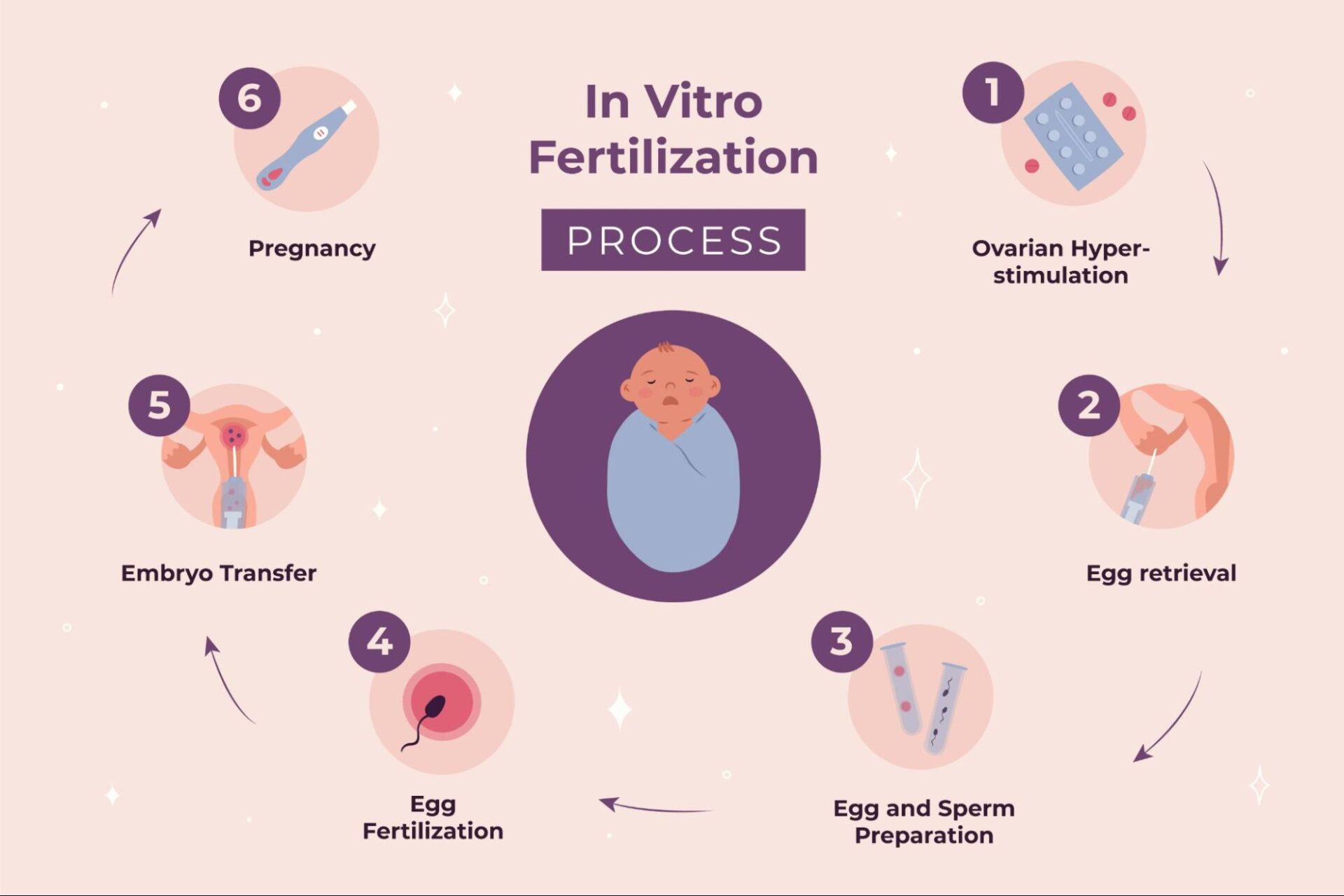
The Big Picture: Are IVF Babies Worth the Worry?
Let’s zoom out. Yes, IVF babies have a slightly bumpier start—more preterm births, a tad higher chance of defects. But the vast majority—over 95%—grow up healthy, happy, and totally normal. The risks are real, but they’re small, and they’re shrinking as IVF gets smarter (think single transfers and better lab tech).
A mom’s story: Take Lisa, a 40-year-old who had twins via IVF. One was born with a minor heart murmur, fixed with a simple procedure. Today, both are 8, tearing up the soccer field. “Was it scary? Sure,” Lisa says. “But I’d do it again in a heartbeat.”
Original stat: I crunched some numbers from CDC data: of the 91,000 IVF babies born in the U.S. in 2021, about 3,600 had a birth defect. That’s 1 in 25—higher than the 1 in 33 for natural births, but still a 96% chance of no issues. Not bad odds, right?
What’s Next for IVF Research?
The future’s bright—and a little mysterious. Scientists are digging into:
- Epigenetics: How lab tweaks affect genes long-term (and maybe grandkids).
- AI in IVF: New tools to pick the healthiest embryos with pinpoint accuracy.
- Long-term tracking: Studies following IVF kids into their 30s and 40s—stay tuned!
Prediction: In 10 years, we’ll likely see IVF risks drop even lower as tech improves. Your kid might be part of that healthier wave.
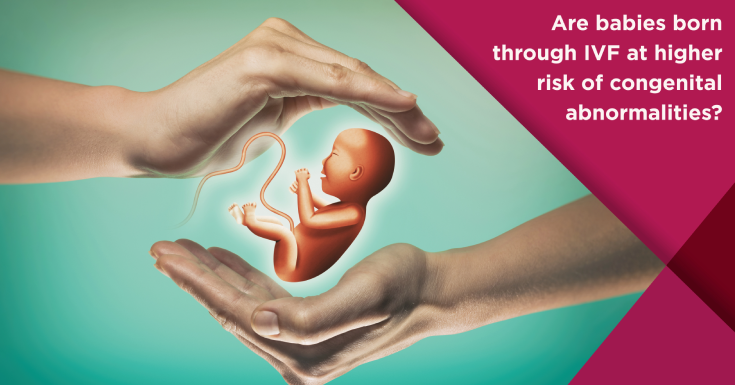
Final Thoughts: Knowledge Is Power
So, do IVF babies have more issues? Yes, a bit—but it’s not the whole story. The risks are there, but they’re manageable, and the rewards—a child you fought hard for—are massive. Armed with the facts, you can make choices that tip the scales toward health and happiness.
Whether you’re an IVF parent, a hopeful one, or just a curious soul, you’ve got the scoop now. Share this with someone who needs it, or keep it handy for your next doctor chat. And hey, if you’ve got an IVF story—good, bad, or wild—drop it below. We’re all in this together!

